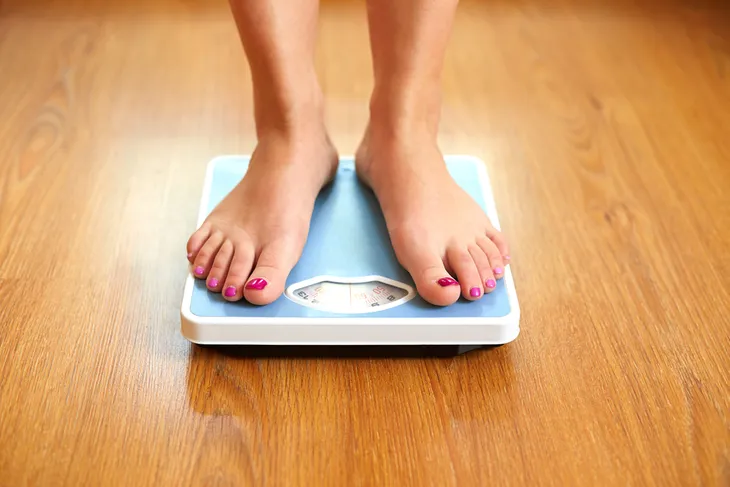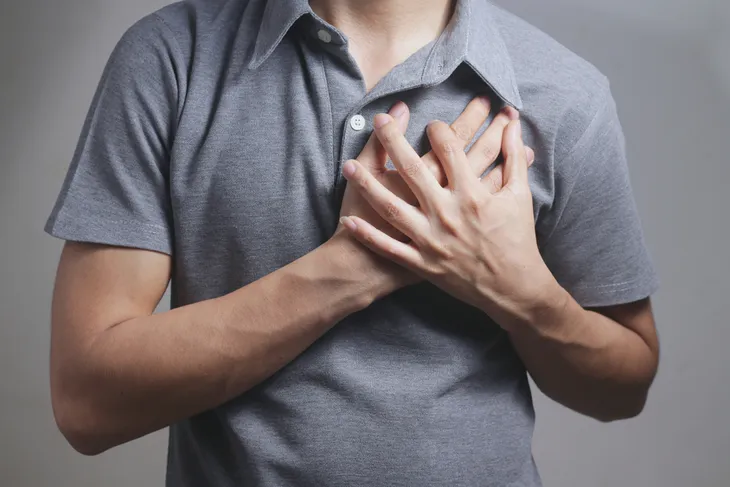- Heart disease is the leading cause of fatality in the U.S.
- Your risk for heart disease increases as you grow older so it’s important to start taking preventive measures now.
- You can take care of your heart by living a healthy lifestyle, getting regular screenings, and knowing the signs of heart disease. It’s also important to know the warning signs of a heart attack in the event an emergency arises.
Heart disease is a prevalent problem not only in the U.S. but worldwide. To make matters worse, your risk for heart disease or heart attack increases as you grow older. All the more reason to take preventive measures as soon as possible!
While certain factors are out of our control, such as genetics, gender, and age, there are many within your control. Follow along as we take a look at how the heart changes as you age and the steps you can take to protect your heart as you grow older.
How Does the Heart Change as We Age?
According to the National Institute on Aging, individuals age 65 and older have a greater risk of suffering a heart attack or stroke. They also have a greater risk of developing coronary heart disease and heart failure. But why is this the case?
For starters, your heart can weaken over time, especially if you become less active as you age. This can cause the left ventricle to become stiffer, making it difficult for the heart to pump oxygen-rich blood throughout your body.
Furthermore, your heart beats slower during physical exercise and stressful situations compared to when you were younger. As you age the heart walls become thicker, which decreases the amount of blood the heart chambers can hold. This can lead to hypotension. Luckily, there are steps you can take to “delay, lower, or possibly avoid or reverse your risk,” says the source.
Adopt a Heart-Healthy Diet
It’s no secret that a healthy diet is good for your overall health but it also plays a vital role in heart health. Eating heart-healthy foods like fruits, vegetables, whole grains, healthy fats, low-fat dairy, legumes, and lean meat and fish can help improve your blood pressure and cholesterol which all play an integral role in supporting your heart. It’s also important to remove or limit processed foods and refined sugar.
The Mayo Clinic says two notable food plans for heart health include the Dietary Approaches to Stop Hypertension (DASH) eating plan and the Mediterranean diet. Although, before making any drastic dietary changes it is important to consult your doctor and a dietician to ensure you’re eating the right foods for you.
 Shutterstock/stockcreations
Shutterstock/stockcreationsExercise Regularly
As we mentioned earlier, your heart can weaken over time, especially if you become less active as you age. This is because exercise helps the heart continue to work at optimal efficiency. Think of the heart like the muscles in your legs. When you walk every day, your legs become used to this movement and continue to do so with ease the more consistently you use them. But when you suddenly stop, those muscles become weaker and less efficient. This is why staying active throughout life is extremely important.
Exercise also helps keep your arteries and other blood vessels flexible which helps promote good blood flow and healthy blood pressure, explains Healthline. According to the American Heart Association, adults need at least 150-minutes of moderate-intensity aerobic activity or 75-minutes of vigorous aerobic activity (or a combination of the two) per week. It’s also recommended to incorporate moderate to high-intensity muscle strengthening exercises, like weight lifting or resistance training, at least twice per week. If you’re used to a sedentary lifestyle, start slow and gradually increase the duration and intensity over time.
Manage Stress
Stress can be a helpful response, such as informing your body that something threatening may happen. Short-term stress can also improve performance and alertness, and boost memory but chronic stress is not helpful to the body at all. In fact, Many people underestimate the toll long-term stress can have on the body.
Chronic stress can produce physical symptoms like headaches, upset stomach, low energy, and insomnia but it’s also linked to heart disease. This is because stress may lead to high blood pressure which can increase your risk for a heart attack or stroke. So, it’s vital that you manage your stress daily.
WebMD says some effective ways to manage your stress include going for a walk, meditating, practicing breathwork, talking to a friend or therapist, or just having a good laugh. Find something that helps you relax and lean on that when you’re in stressful situations.
Maintain a Healthy Weight
Maintaining a healthy weight is important for your overall health and your heart. The Mayo Clinic explains that having excess weight, especially around the middle of the body can increase your risk of heart disease. Additionally, the source says being overweight can increase your risk of high blood pressure, high cholesterol, and type 2 diabetes, all of which can contribute to heart diseases.
It’s important to note that there are a lot of factors that go into determining what a healthy weight is for you. So, it’s best to talk to your doctor (who knows your medical history) to determine a healthy weight for you. Following the tips we mentioned above (including diet, exercise, and stress management) can all help you manage your weight or achieve weight loss if it’s recommended by your doctor.
Quit Smoking and Reduce Alcohol Intake
Your lungs aren’t the only vital organ that’s at risk. Smoking can affect your heart too. The chemicals in the smoke can damage your heart and blood vessels, which can greatly increase your risk of heart disease. It’s never too late to quit! While it’s not easy there are resources available to help you along the way. So, contact your doctor for support.
You should also be mindful of your alcohol intake. Excessive alcohol intake can affect the heart in several ways. For starters, it can increase your risk for high blood pressure and cardiomyopathy (a disorder that affects the heart). Excessive drinking also increases your risk for heart failure and stroke. The National Institute on Aging says men shouldn’t have more than two drinks per day and women shouldn’t have more than one. One drink means:
- One 5-ounce glass of red or white wine
- One 12-ounce can or bottle of regular beer, ale, or wine cooler
- One 1.5-ounce shot glass of distilled spirits (such as tequila, vodka, whiskey, or gin)
- One 8 or 9-ounce can or bottle of malt liquor
Get Better Sleep
Sleep plays an integral role in stabilizing your blood pressure. The Centers for Disease Control and Prevention (CDC) explains that during sleep your blood pressure goes down and when you’re having sleep problems your blood pressure stays elevated for longer periods of time. And, high blood pressure is one of the leading risk factors for heart disease.
Most adults need around 7- to 9-hours of sleep each night. But it’s important to have good quality sleep too, meaning fewer disruptions during the night. Start investing in your sleep hygiene habits by sticking to a regular sleep schedule (even on weekends), and keeping your bedroom dark, cool, and quiet. Avoiding caffeine late in the day and spending time winding down before bed can help you sleep better too.
Pay Attention to Snoring
While we’re on the topic of sleep, it’s also important to pay attention to snoring. Does your partner complain about your snoring? While it may be a nuisance to them, it can also be a sign of sleep apnea.
While not all snorers have sleep apnea, watch out for snoring that is accompanied by other symptoms such as breathing that pauses during sleep, excessive daytime sleepiness, difficulty concentrating, morning headaches, sore throat when awakening, and restless sleep. Other signs of sleep apnea include gasping or choking at night, high blood pressure, chest pain at night, and snoring so loud it disrupts your partner’s sleep.
Sleep apnea is a cause for concern because it can contribute to high blood pressure, heart disease, and stroke explains the American Heart Association. If you or your partner notice signs of sleep apnea, contact your doctor for a proper diagnosis and treatment plan.
Get Regular Health Screenings
Another effective way you can protect your heart as you age is by getting regular health screenings. Since high blood pressure, high cholesterol, and diabetes can damage the heart and blood vessels, it’s important to be screened. Regular screenings can help identify problems early which typically provides the best outcome.
The Mayo Clinic says blood pressure screenings typically start in childhood but should be checked at least every 1- to 2-years starting at age 18. Individuals between ages 18 and 39 that have risk factors for high blood pressure will need to be screened yearly and individuals 40 and over should also be screened yearly.
The source also notes that adults should have their cholesterol levels checked every 4- to 6-years starting at age 20 or earlier if it’s recommended by your doctor. Finally, screening for type 2 diabetes typically starts at age 45 and should be done every 3-years. Testing may start earlier if you have a family history or if you’re overweight.
Follow Your Treatment Plan
If you’ve been diagnosed with high blood pressure, high cholesterol, or diabetes, the best thing you can do for your heart is to follow your treatment plan. This includes prescribed medication as well as dietary and lifestyle adjustments that your doctor recommends.
While lifestyle adjustments and diet changes aren’t always easy it is a vital part of your treatment plan and an important step in protecting your heart. If you’re struggling, reach out to your doctor or family and friends for support.
Know the Signs of Heart Disease
Along with taking steps to support your heart health, it’s also very important to know the warning signs of heart disease. This way if symptoms arise you can contact your doctor right away to find out what’s wrong.
According to the U.S. Library of Medicine, be on the lookout for these possible warning signs of heart disease:
- Chest pain: while it’s not always a sign as it could merely be a strained muscle, it may also be a sign of poor blood flow and should be checked by a doctor.
- Shortness of breath: this may be noticeable during activity, while resting, or when lying flat on your back.
- Coughing or wheezing: may be a sign that fluid is building up in your lungs.
- Swelling in the lower legs: when the heart isn’t working efficiently, blood flow slows and backs up in the veins of your legs, causing fluid to build up.
- Fatigue: while this may simply mean you need more rest, fatigue can also be a sign of heart trouble. Pay attention to unusual fatigue, fatigue that is sudden, or fatigue that interferes with your daily activities.
- Fast or irregular heartbeat: if your heart can’t work efficiently, it may beat faster to try and keep up. An irregular heartbeat can also be a sign of arrhythmia and should be looked at by a doctor.
Many of these signs can be warning signs of a heart attack too (which we’ll discuss in more detail next), so it’s vital that you contact a doctor right away if they develop.
Know the Signs of a Heart Attack
It’s also vital that you know the signs of a heart attack. When a heart attack is occurring, time is of the essence and it is a medical emergency.
The American Heart Association says that the warning signs of a heart attack are chest discomfort (which typically feels like pressure, squeezing, fullness, or pain that may come and go), discomfort in other areas of the upper body (such as arms, back, neck, jaw, or stomach), and shortness of breath (can occur with or without chest discomfort).
The AHA also points out that symptoms of a heart attack can be different in men and women. The most common heart attack symptom is chest pain in both men and women, however, women are more likely to develop other symptoms like jaw or back pain, shortness of breath, as well as nausea/vomiting.
The source also notes that some heart attacks are sudden and intense while others start slowly with mild symptoms but both cases are a medical emergency. If you or a loved one develops any of these warning signs, contact emergency medical services immediately.














